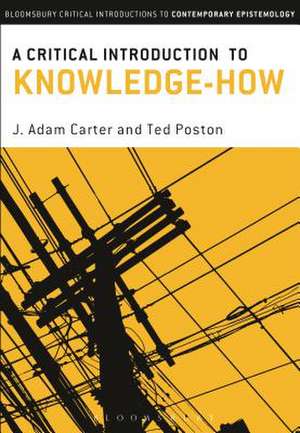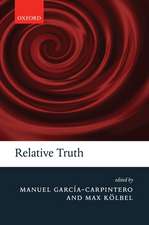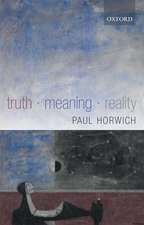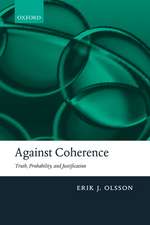A Critical Introduction to Knowledge-How: Bloomsbury Critical Introductions to Contemporary Epistemology
Autor Dr J. Adam Carter, Professor Ted Postonen Limba Engleză Paperback – 21 feb 2018
| Toate formatele și edițiile | Preț | Express |
|---|---|---|
| Paperback (1) | 184.75 lei 3-5 săpt. | |
| Bloomsbury Publishing – 21 feb 2018 | 184.75 lei 3-5 săpt. | |
| Hardback (1) | 567.83 lei 6-8 săpt. | |
| Bloomsbury Publishing – 21 feb 2018 | 567.83 lei 6-8 săpt. |
Preț: 184.75 lei
Preț vechi: 214.88 lei
-14% Nou
Puncte Express: 277
Preț estimativ în valută:
35.35€ • 38.52$ • 29.79£
35.35€ • 38.52$ • 29.79£
Carte disponibilă
Livrare economică 02-16 aprilie
Preluare comenzi: 021 569.72.76
Specificații
ISBN-13: 9781472514929
ISBN-10: 1472514920
Pagini: 256
Dimensiuni: 138 x 216 x 23 mm
Greutate: 0.33 kg
Editura: Bloomsbury Publishing
Colecția Bloomsbury Academic
Seria Bloomsbury Critical Introductions to Contemporary Epistemology
Locul publicării:London, United Kingdom
ISBN-10: 1472514920
Pagini: 256
Dimensiuni: 138 x 216 x 23 mm
Greutate: 0.33 kg
Editura: Bloomsbury Publishing
Colecția Bloomsbury Academic
Seria Bloomsbury Critical Introductions to Contemporary Epistemology
Locul publicării:London, United Kingdom
Caracteristici
Explores five epistemic debates: cognitive achievement, epistemic luck, logical knowledge, epistemic value and social epistemology
Notă biografică
J. Adam Carter is Lecturer in Philosophy at University of Glasgow, UK.Ted Poston is an Associate Professor of Philosophy at the University of South Alabama, USA
Cuprins
1. Knowledge-How: A Brief Historical Overview2. The Case of Intellectualism3. Knowledge-How and Epistemic Luck4. Knowledge-How and Cognitive Achievement5. Knowledge-How and Testimony6. Knowledge-How and Knowledge of Language7. Knowledge-How: Normativity and Epistemic Value8. Knowledge-How: Future DirectionsBibliographyIndex
Recenzii
This is an excellent survey of the philosophy of knowing-how, as opposed to the more traditional epistemological subject knowing-that . The book is easily accessible to beginners, avoiding technicality in favor of clear, straightforward presentation. Each chapter closes with study questions and five or six key works, the latter supplemented by a more thorough bibliography at the back of the book. The volume would make an excellent course book for beginners, but it will also be a useful guide for more experienced philosophers seeking an overview of the subfield. Summing Up: Recommended. Lower- and upper-division undergraduates; graduate students.
This excellent book offers a comprehensive overview of one of the most exciting and fast-moving debates in contemporary philosophy. It will surely become required reading for anyone working in the field.
An introduction to knowledge-how that is not only critical but comprehensive and insightful. Students will find in it a wide array of interestingly interrelated issues in epistemology and theory of action, and will be guided through the many conceptual thickets that arise in the attempt to understand what it is to possess knowledge-how.
This excellent book offers a comprehensive overview of one of the most exciting and fast-moving debates in contemporary philosophy. It will surely become required reading for anyone working in the field.
An introduction to knowledge-how that is not only critical but comprehensive and insightful. Students will find in it a wide array of interestingly interrelated issues in epistemology and theory of action, and will be guided through the many conceptual thickets that arise in the attempt to understand what it is to possess knowledge-how.

























